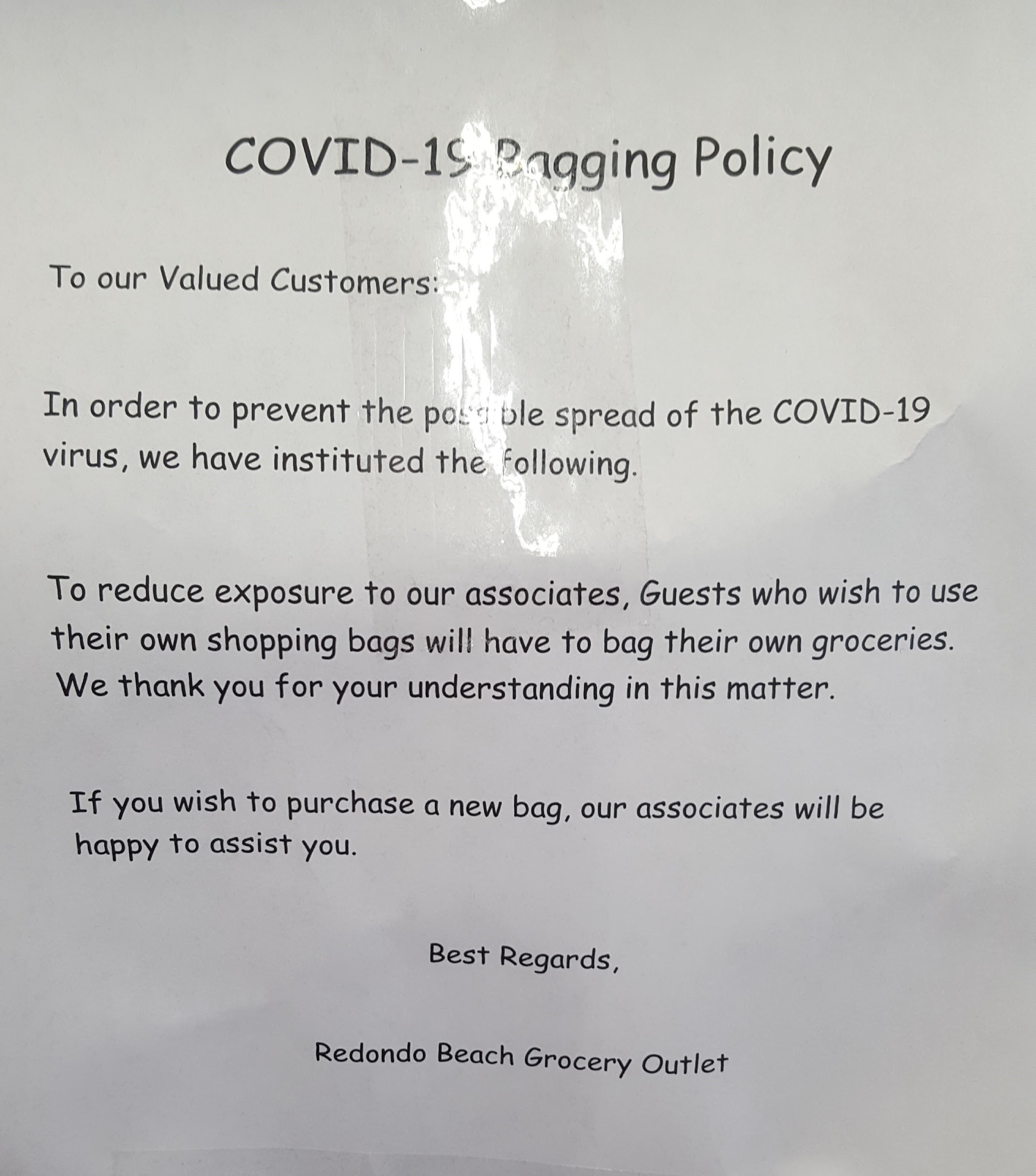While several states are rethinking their single-use plastic bag bans for health reasons during the COVID-19 pandemic, California, which led the nation down the misguided path to prohibition, has yet to act. It should have been the first to suspend its ban. But here we wait while other states are taking the lead.
Massachusetts Gov. Charlie Baker has issued a public health order that lifts local bans of plastic bags at grocery and drug stores, while also temporarily banning reusable bags, which have been known to carry nasty bugs, including E. coli, salmonella, and fecal coliform. New Hampshire Gov. Chris Sununu has issued an emergency order that bars customers from dragging their reusable shopping bags into stores, and requires retailers to offer disposable plastic or paper bags instead.
In Connecticut, Gov. Ned Lamont has halted the state’s 10-cent tax on plastic bags, while New York has delayed enforcement of the state’s plastic bag ban until May 15, six weeks after the original enforcement date. Maine has also rescheduled the timetable of its law. It was to go into effect on Earth Day next month, but won’t be enforced until January 2021.
Meanwhile, a state senator in Washington had asked Gov. Jay Inslee “to overturn a soon-to-be-implemented plastic bag ban, over concerns that coronavirus could be transmitted on reusable bags brought to grocery stores by shoppers.” But Inslee signed the bill anyway on March 27, claiming it “a victory for our environment.” The ban will be in place next year.
The reusable bags that have replaced for many the thin-gauge bags that have been widely outlawed are far too often carriers of a simmering, noxious stew. A report in The Journal of Hospital Infection says “human coronaviruses such as Severe Acute Respiratory Syndrome (SARS) coronavirus, Middle East Respiratory Syndrome (MERS) coronavirus or endemic human coronaviruses (HCoV) can persist on inanimate surfaces like metal, glass or plastic for up to nine days.”
Reusable bags are enough of a threat that some grocers, in California and elsewhere, are not allowing their employees place items directly into them. Customers who bring reusable bags into the store have to sack up their own purchases.

At least one chain, Hy-Vee, which owns hundreds of markets throughout the Midwest, has even said reusable bags are not welcome in its stores. The media are reporting that in Illinois, “grocery stores are being advised” by the governor “to prohibit shoppers from using reusable bags to protect their workers and other shoppers from contracting the coronavirus.” A number of California stores has adopted this practice, as well.
The state’s public sector, however, has not been as quick to adapt. Gov. Gavin Newsom has issued a small catalog of orders regarding the COVID-19 outbreak, including a stay-at-home command, but it’s unclear if he intends to issue orders that would affect the single-use plastic bag ban. A call to his press office on Monday went unanswered, and the office’s voice mailbox was full and unable to receive messages. An email message sent Monday morning had not been answered by Wednesday.
Though temporary relief from the ban is better than none, particularly in a time when it’s needed for health reasons, it wouldn’t be as useful as a full, permanent repeal. Plastic bag bans are more environmental menace than benefit, have an imperceptible impact on ground litter and ocean debris, carry hidden costs, and rob us of our choices. Banning them was a bad idea. Keeping the ban in place is even worse.
Kerry Jackson is a fellow with the Center for California Reform at the Pacific Research Institute.

